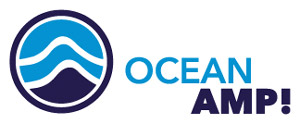Whether you are a hardcore environmentalist or if being “green” is low on your list of priorities, the fact of the matter is that you live on planet Earth, and so will your children and your children’s children. We all have a responsibility to keep the planet has livable as possible.
The ocean is not only responsible for producing 70 percent of our oxygen and regulating the Earth’s climate, but it is also home to the estimated 700,000 to one million marine species. It is even thought, that one-third to two-thirds of marine species have yet to be discovered.
The scary part is that these organisms are disappearing before we even found out about their existence. Here is a list of five easy ways we can slow our detrimental effect on the ocean and its marine species.
1. Don’t use Face-Scrub
Recent research has shown that the microbeads found in many newer face washes and exfoliants are causing harm in bodies of water across the world. Since the beads used in there are tiny they obviously get into our sewage systems and from there into our Oceans. There fish and other organisms consume them. Eating these beads causes DNA changes and even death in some of these animals.
Last year, researchers at the University of Wisconsin found that there were between 1,500 and 1.7 million particles of plastic per square mile in the Great Lakes. Illinois is the first state to ban these microbeads leading many others, including California, to consider following suit.
Ban the Microbead has published research and facts about the harm of microbeads on our oceans and marine species as well as a list of products to avoid. To make sure you are using earth-friendly products, you can also use the alternative method of making your own facial scrubs and exfoliants.
2. Don’t buy Polyester clothes
Like to buy the latest styles cheap at Zara, Primark or H&M? Easy to get something cool, and when it is washed out, out of style or just worn too much we throw it away? On top, snce it was’t too expensive, it was probably out of polyester. Polyester and Microfibers may be causing just as much damage as the beads just mentioned. When you wash these clothes, tiny bits of fiber make their way out of the washing machine with the dirty water. In fact, an estimated 1,900 of these fibers can wash out of a single piece of synthetic clothing each time it goes through the machine.
Scientist Mark Browne conducted a study sampling 18 shorelines across the globe and found that 85 percent of the synthetic materials accumulated on these shorelines were microfibers matching those found in our clothing. By making more conscious clothing choices and keeping up to date on new environmentally-friendly textiles we can lessen our pollutants and hopefully in the near future, stop sending these fibers out for marine animals to ingest.
3. Choose your food wisely- and that of your pet!
Being a responsible pet guardian can actually have a direct effect on our ocean’s health. Reading and researching your pet’s food is one way to help marine species. For obligate carnivores such as our cats, choosing a food that uses sustainable fisheries in the best option. You can visit the Monterey Bay Aquarium’s Seafood Watch program website to find out which fish are the best option and choose your food accordingly.
Surprisingly, flushing litter, even “flushable” litter, down the toilet can have a negative impact on our oceans. This litter can contain pathogens harmful to marine life.
4. Protect Your Paradise
Though not intuitive, becoming SCUBA certified and experiencing the ocean is an amazing way to help protect it and the organisms that call it home. SCUBA divers not only contribute financially to Marine Protected Areas and to eco-tourism of dive areas, they experience the ocean. Divers learn to appreciate the ocean, how fragile it is and all the beauty and majesty it offers. By immersing themselves in another world, divers learn to love the organisms they visit and the area they inhabit. Seeing trash and evidence of humans in a world it shouldn’t be inspires people to make a change.
If you want to understand the ocean and marine organisms on a more personal level, get your dive certification and take the time to experience the beauty. When you come back to the surface you’ll find yourself more passionate about the cause, possibly spreading your new found excitement to your friends and family.
Inspiring others to make changes to benefit the ocean is the easiest and most effective way to save the marine species we have left and reverse the damage we’ve already done. By making small changes in day to day life and slowly becoming more conscious of our personal impact on marine organisms, we can save our oceans and and the thousands of species that live there.
5. Bring your own Bag and get Glass bottles
…and please let this bag be a fancy cotton bag like hipsters wear them!
Plastics are just terrible for our planet.
Firstly, plastics are in most cases made from petrochemicals through an energy intensive process that itself creates lots of pollution and toxic discharge. The fact is, every plastic container you use is making the planet less habitable. Also, most plastic in the world is not recycled and usually ends up in landfills, where it degrades very slowly. According to Wikipedia, “Since the 1950s, one billion tons of plastic have been discarded and may persist for hundreds or even thousands of years.”
You can use break-proof glass water bottles: This glass water bottle has a rubber coating that prevents breakage. It makes water taste amazing! I take mine everywhere I go and it helps me avoid using plastic water bottles.
FIND THE SOURCE OF THIS ARTICLE AND MORE ABOUT THIS ISSUE HERE!



